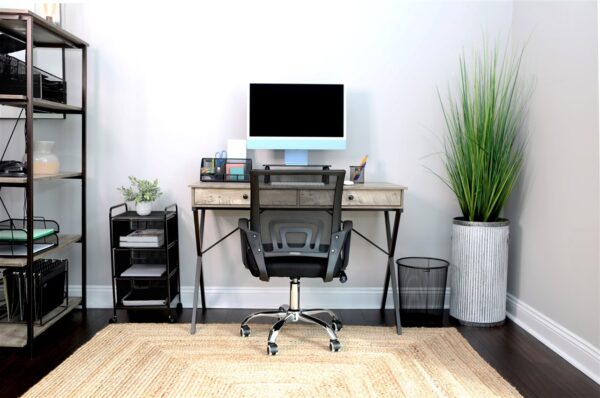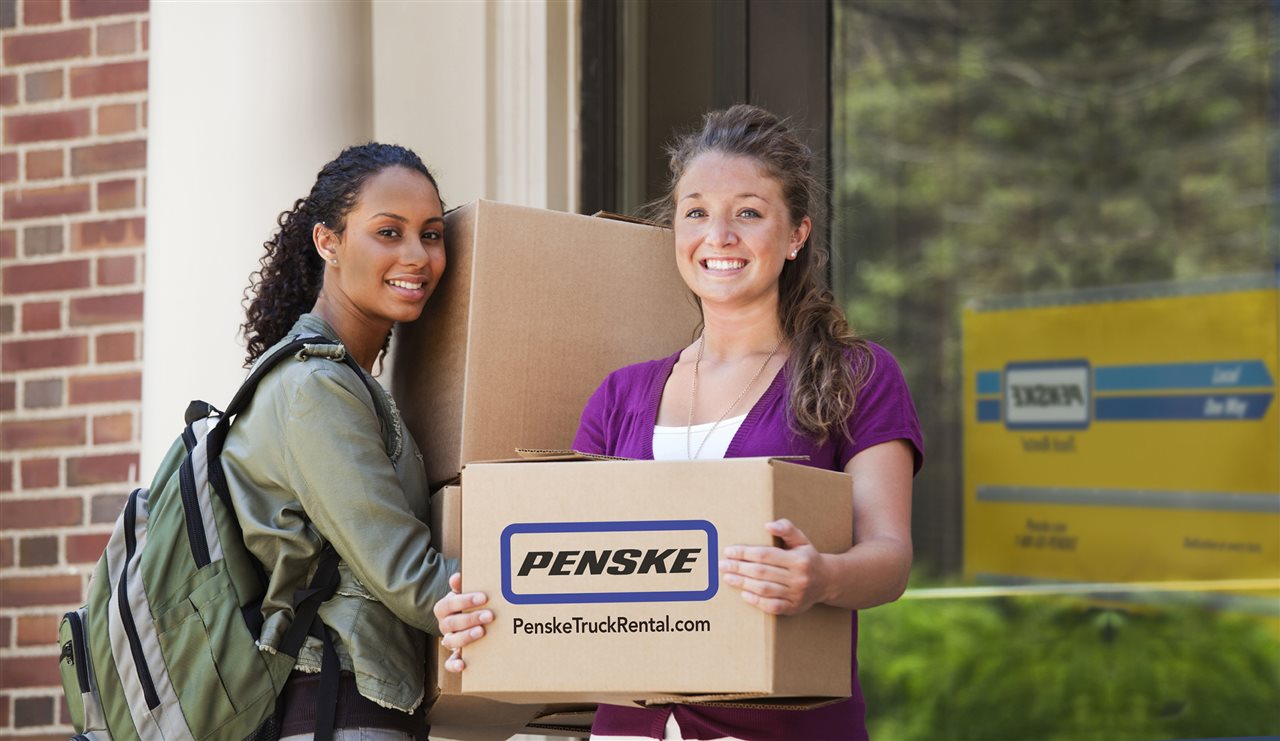How’s your office working for you? According to a recent survey from organizational solution brand, Mind Reader, 86 percent of people see their workspace as having an impact on their happiness — which makes an organized office at home or at work essential to keeping a positive mood. If you’re setting up your workday in different spots at home throughout the day (18 percent), hunkering down at your dining table (17 percent), or working exclusively from bed (16 percent) it might be time to revamp your workspace to an ergonomic, organized and functional area. Your overall health, well-being, and productivity will thank you.
A comfortable home office not only supports a positive mindset but can allow you to maintain good posture throughout the day, reducing strain on your neck, back, and shoulders and helping you feel your best when powering through a busy day. Positioning your computer correctly, whether you’re using a monitor or a laptop, can reduce eye and arm strain and fatigue, not to mention the extra focus you’ll get when you’re not hunched over your screen all day long. Even something as simple as organizing your office supplies cuts down on wasted time and frustration.
According to the survey from Mind Reader, 83 percent feel more productive if their workspace is organized and — if it were more organized — believe they could increase their productivity by 38 percent. Creating an ergonomic, organized workspace at home or in the office doesn’t have to be complicated or fancy. It’s about finding simple, intuitive solutions that you can use to transform a corner of your home or apartment into a place where you can focus on your work and get the job done in comfort.
Here are a few simple ways to create a comfortable, ergonomic home office.
Desk. Start with the basics. You do not need an enormous mahogany desk suitable for the Oval Office. Just a work surface big enough for your laptop or monitor, or both, where you can comfortably type with your arms at a 90-degree angle. If you prefer a standing desk, you can find models for under $50 that are adjustable and portable.
Chair. A supportive, ergonomic chair is half the battle. You’ll be sitting in it for much of the day, so make it work for you. But, you don’t have to invest hundreds of dollars in a new office chair. You can transform the chair you already have with inexpensive back supports and cushions. Mind Reader, the experts in creating organized, ergonomic home workspaces, offers a few varieties of backrests and cushions, all for under about $40. It’s that affordable and easy.
Screens. Now let’s talk about your screens. To avoid eye strain, you should position your monitor or laptop at eye level. Oftentimes, this means you need a monitor stand. You can make it dual-functioning by finding one that has drawers underneath for paper and pens. That handled, be mindful of how long you stare at that screen. Eye professionals recommend using the 20-20-20 rule — every 20 minutes, look at an object 20 feet away for 20 seconds. This gives your eyes a reset from all of that screen time.
Foot rest. You will be surprised by how much difference an ergonomic foot rest makes when you’re sitting at your desk all day. It helps you maintain correct posture and reduces the strain on your back and legs, alleviating swelling in your ankles and feet. Many models are adjustable and come with massage rollers for an added boost. Again, these don’t have to be expensive. This Mind Reader Foot Rest is under $30, adjustable, and includes those massage rollers.
Cables. All of those tangled cords are just plain messy and disruptive to look at. Wrangle them with a cable tray you can position under your desk, a cable management snake, or ties and clips to keep them under control and out of your line of sight.
Storage. If you’re set up at your kitchen table, where are all of your office supplies? The solution is a wheeled storage cart with drawers. You can pop your office supplies like printer paper, notepads, pens, and whatever else you use into the drawers. Roll it out when you need to use it, and tuck it into the corner when you end your workday.
With these simple tips, you can create a better home workspace that will elevate your productivity and contribute to your health and well-being, too. For more ideas, visit Mind Reader.


